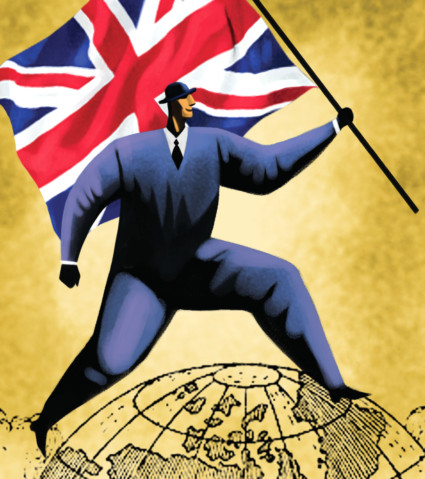
I came into the Foreign Office on Saturday morning after a pretty truncated night’s sleep to find the place in what Her Majesty’s Diplomatic Service calls “crisis mode”.
In the bowels of the Italianate palazzo off St James’s Park dozens of people had been up all night, calmly monitoring screens and coolly assessing fresh information. Some of them had worked consecutive shifts without sleep. They had been liaising with New York and Washington and other European capitals. They had been sifting information, “scrubbing” intelligence and dealing with the needs of UK nationals abroad. Some of them were still engaged in the aftermath of the horrendous carnage in Nice; some had only just finished organising an evacuation of aid workers from Juba in South Sudan, scene of a singularly nasty conflict.
Most of the officials — as you would expect — were working on the unfolding crisis in Turkey, where the failed coup had myriad implications for this country. To take one example: at about 3am on Saturday morning we realised that there was a party of British passengers who were changing planes at Istanbul’s massive Ataturk airport. They were stuck airside as the coup attempt began, and their onward flight was grounded. Turkish President Recep Tayyip Erdogan was apparently planning to land at that airport and restore his authority. What if the rebels decided to attack the airport? Someone needed to get through to the party and, as so often happens, the UK happened to have a diplomat on the spot. A UK official also transiting through the airport and trapped airside at Istanbul was able to meet up with the party and provide an immediate link to London.
Elsewhere in Turkey — at the resorts and the big transport hubs — UK consular staff were out, many in hi-vis jackets, providing information and travel advice, just as they had been doing in Nice only hours earlier. As I talked by teleconference first to the Turkish foreign minister and then to our staff in Istanbul and Ankara, I was filled with amazement at the reach and reputation of this country around the world. It is an incredible fact that, as I write, there are 50,000 UK nationals on holiday in Turkey — part of an annual summer migration of 1.3 million Brits to Turkey alone. Even 20 years ago, those numbers would have seemed fanciful.
Mutually beneficial trade and tourism between our two countries are now at an all-time high and are continuing to grow; and it is clearly the ambition of Prime Minister Theresa May’s new government that this should continue. This country should be more outward-looking, more engaged, and more active on the world stage than ever before.
On Wednesday evening the Prime Minister made a powerful speech on the steps of Downing Street. She spoke of forging a new future for the country, a positive and confident vision where we open up opportunity to everyone, regardless of their background; and where Britain, in turn, seizes the new opportunities the world has to offer. We cannot leave “Europe” in the proper sense of that word — that is geographically, emotionally, culturally impossible; and we will remain key players in all kinds of intergovernmental cooperation with our European friends and partners.
But we can and must respect the people’s will, and extricate ourselves from the EU. And that gives us a chance not just to do new trade deals, but to think of ourselves once again as a truly global Britain using our unique voice — humane, compassionate, principled — to do good around the world, and to exploit growth markets to the full. We have the ambition in our exporters and our businesses; and from just my first few hours in the job I can tell you that in Whitehall and around the world we have the staff who are only too eager to get on with it and help build a new role for this country: a global Britain.
— The Telegraph Group Limited, London 2016
Boris Johnson is Britain’s Foreign Secretary












